#louis philippe i
Text
In this chapter, we encounter THAT famously long sentence spanning 760 words in original. Truly impressive.
We have already encountered Louis Philippe in the gamin digression, where he was portrayed as a pleasant and self-ironic man whose only flaw was his status as king. Hugo's perspective on him remains consistent. Although the 1830 Revolution didn't result in a Republic, it did bring forth a decent man as king. Given Hugo's critical stance towards monarchy, it's rather peculiar that he invests effort in highlighting Louis Philippe's humility, modesty, and unroyal demeanour. Probably, part of Louis Philippe's appeal to the French population was his experience, having endured exile with its attendant challenges — financial loss, loss of status, and his entire family needing to earn their livelihoods. He also possessed a revolutionary past, having been a member of the Jacobins' club and personally knowing Mirabeau and Danton.
Though not explicitly mentioned in the text, it's worth noting a point in Louis Philippe's later biography that parallels Hugo's own experiences — spending the last years of his life in exile in Great Britain. I suspect that Louis Philippe's futile fight to abolish the death penalty was also a point of resonance for Hugo. “One day, he said to the same witness to whom we have recently referred: “I won seven last night.” During the early years of his reign, the death penalty was as good as abolished, and the erection of a scaffold was a violence committed against the King. The Grève having disappeared with the elder branch, a bourgeois place of execution was instituted under the name of the Barrière-Saint-Jacques; “practical men” felt the necessity of a quasi-legitimate guillotine.”
However, at times, Hugo tends to exaggerate Louis Philippe's accomplishments, such as in the case of press freedom: “While he reigned the press was free, the tribune was free, conscience and speech were free.” Well, to some extent… No outright censorship was enforced, but a 1830 law of libel functioned as a form of censorship.
23 notes
·
View notes
Text
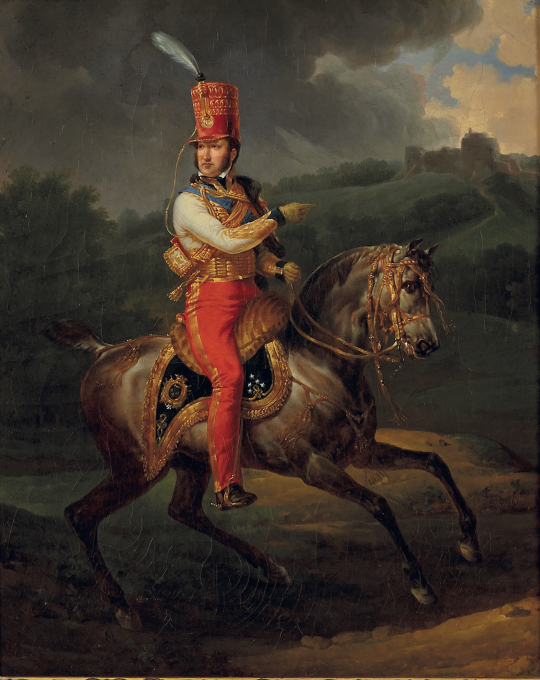
Equestrian portrait of Louis-Philippe I (1773-1850). By Horace Vernet.
#equestrian portrait#royaume de france#horace vernet#maison d'orléans#bourbon orleans#louis philippe i#duc d'orléans#roi de france#vive le roi
9 notes
·
View notes
Note
i heard lafayette got drawn by his daughter or smth? it was like him laying on the couch, do you think you have that?
Dear Anon,
La Fayette’s daughter Anastasie had indeed quite a gift for painting and sketching. Most famous is probably her Le geôlier de la prison d'Olmütz - a sketch of one of the family's prison guards at Olmütz.

Christie’s - LOT 161 - Le geôlier de la prison d'Olmütz by Anastasie de La Fayette (07/21/2023).
I am not aware of any sketch by her that depicts La Fayette laying on a sofa. The only such piece that comes to my mind is this one:

Le Cauchemar is a political caricature published on February 23, 1832, as a response to the changing relationship between La Fayette and Louis Philippe I. It was done by Honoré Daumier, not Anastasie and based on the painting The Nightmare by Henry Fuseli from 1781.
Do you have any further detail on this drawing? A time period when the sketch was made for example or some more context? For right now, I do not know what sketch/painting of La Fayette you are referring to but maybe someone reading this has more information than I do. :-)
I am sorry that I was not able to help you but I hope you have/had a great day!
#ask me anything#anon#marquis de lafayette#la fayette#french history#art#anastasie de la fayette#the nightmare#1781#henry fuseli#1832#olmütz#history#french revolution#christie's#honoré daumier#louis philippe i
13 notes
·
View notes
Text

King Louis-Philippe Escorted by His Sons Leaving Versailles on June 10, 1837 by Horace Vernet, 1846.
#classic art#painting#horace vernet#french artist#19th century#romanticism#history#modern period#louis philippe i#men#horses#gate
10 notes
·
View notes
Text
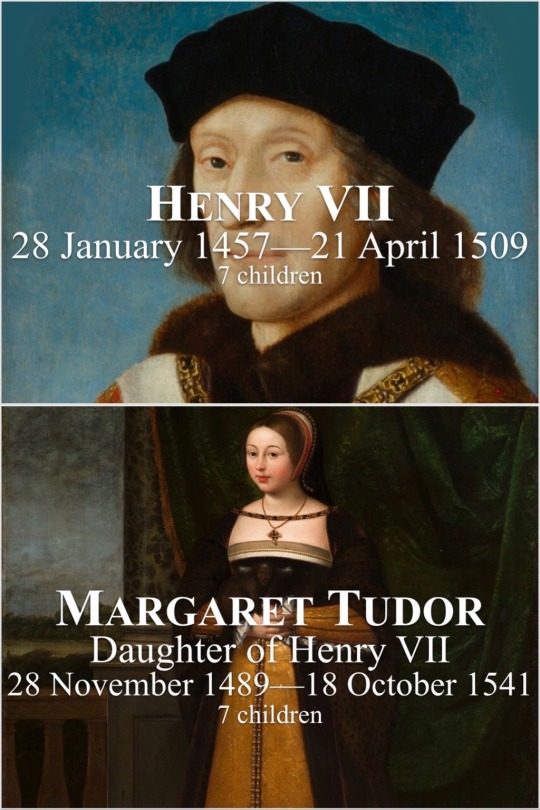



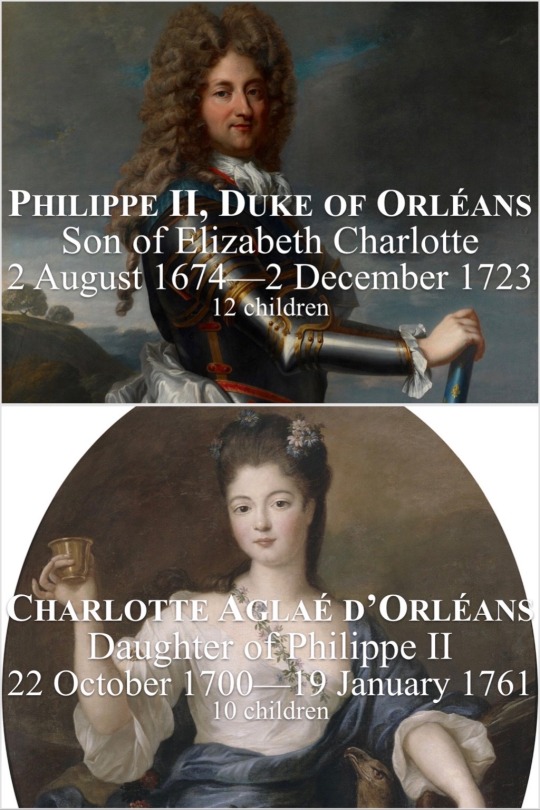
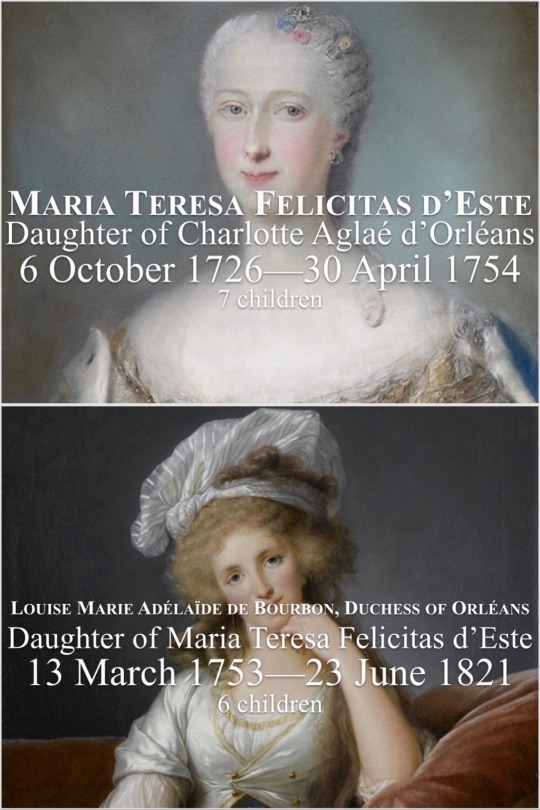

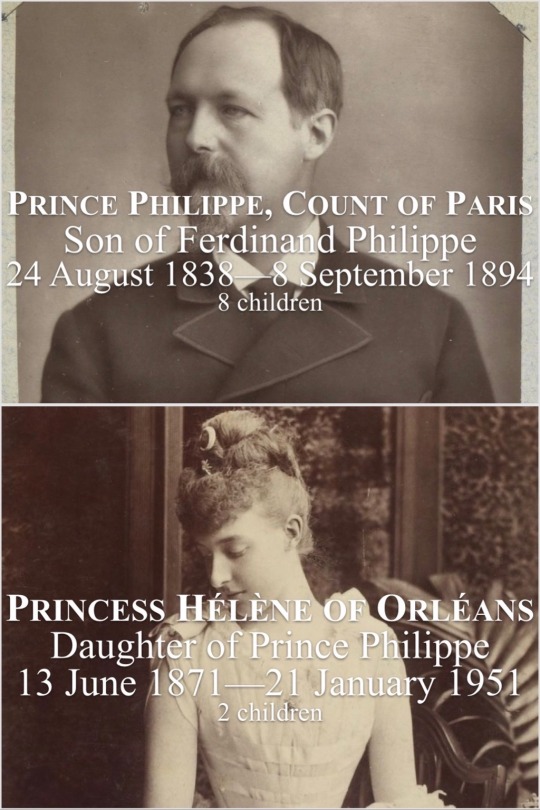
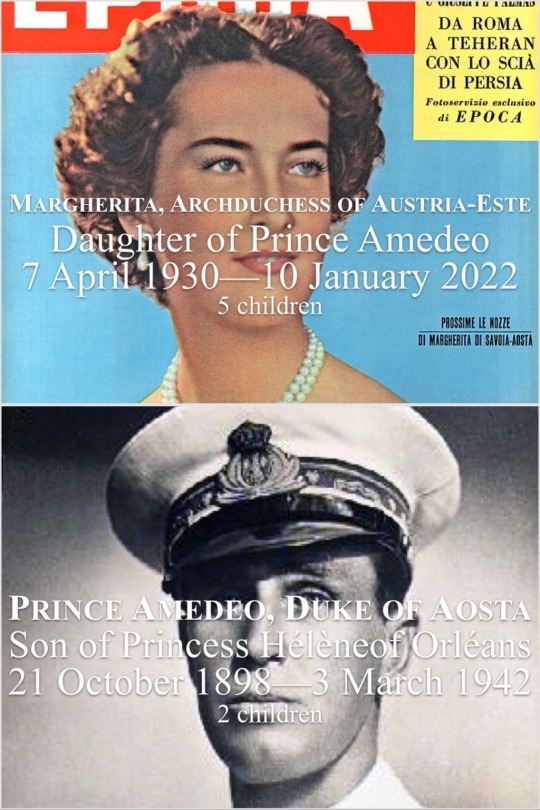

Descendants of the Tudors
#descendants of the tudors#henry vii#margaret tudor#james v#mary queen of scots#james vi and i#elizabeth stuart#charles i louis#elizabeth charlotte madame palatine#philippe ii duke of orléans#charlotte aglaé d’orléans#maria teresa felicitas d’este#louise marie adélaïde de bourbon#louis philippe i#ferdinand philippe duke of orléans#prince philippe count of paris#princess hélène of orléans#margherita archduchess of austria este#prince amedeo duke of aosta#prince lorenz#princess laetitia maria
4 notes
·
View notes
Text
Louis Philippe I vs Charles X (It's King vs King.) During the July Revolution.
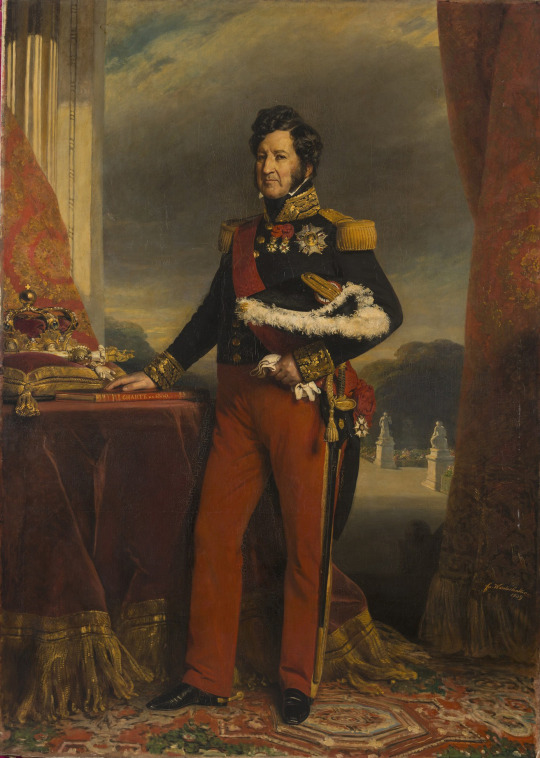
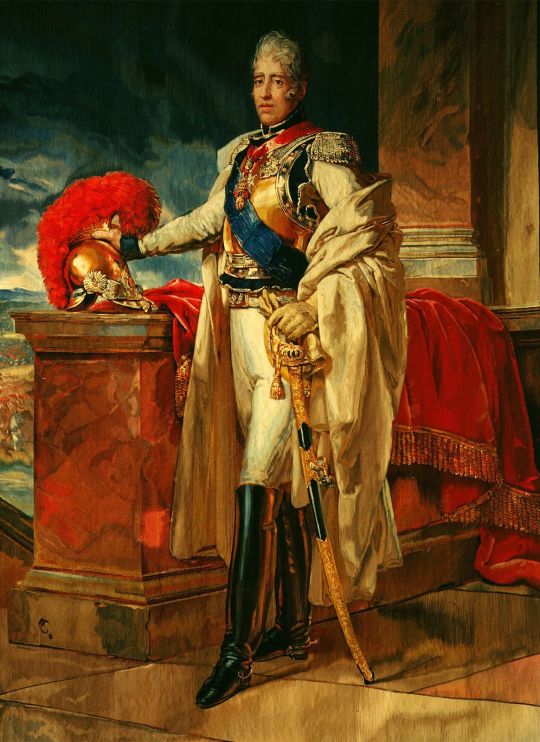
This is a revolution between Kings. First one is Louis Philippe I, and the Second one i is Charles X. The fight between the Kings of France.
#kingdom of france#July Revolution#July monarchy#Bourbon restoration#Charles X#Louis Philippe I#Revolutions of 1830#History#Historical#King#Kings
2 notes
·
View notes
Text
Infernal Human Machine
A body horror film about the attempted assassination of Louis Philippe I of France by Giuseppe Marco Fieschi. Fieschi is paid by his co-conspirators to built a gun array to fire a volley at the King during a parade, instead Fieschi figures out how to surgically modify himself into a living weapon, so that he can fire projectiles out of barrels he implants into his arms.
#bad idea#movie pitch#pitch and moan#horror#body horror#history#assassination#louis philippe i#louis-philippe i#france#king#infernal machine
0 notes
Text
if you're wondering what the big deal is about the louis-philippe sentence in les misérables, it is, in the original french, 760 words long. the subject of the sentence doesn't appear until 95% of the way through, at word #711; the main verb is word #712. the sentence contains 91 commas and 49 semicolons and is almost entirely a list of laudatory adjectival phrases describing the erstwhile king of france. this is perhaps especially notable because les mis is, shall we say, not known for being particularly gung-ho about the monarchy.
this sentence copied and pasted into Word takes up more than one page single-spaced. in the 1800-page folio classique edition, it is fully two and a half of those 1800 pages. that means that les mis is 0.14% this single sentence. more of les mis is made up of this sentence than earth's atmosphere is made up of carbon dioxide (0.04%). if the page count of les mis stayed the same but every sentence was the length of this one, les mis would consist of only 720 sentences total.
incidentally, guess who named hugo a peer of france 17 years before the publication of les mis?
#he also goes on for another six pages after this but by then he has remembered the existence of the full stop#the endnotes say that hugo 'se devait de faire [ce portrait] aussi favorable que possible à la personnalité de l'homme#qui avait favorisé sa carrière' (had to make this portrait as favorable as possible to the character of the man who had favored his career)#in fairness to hugo it's not like louis-philippe was alive to read this. so he wasn't just sucking up to get something out of it#he says at the end of the chapter that this description is 'entirely disinterested'. which like on the one hand i get#bc like i said louis-philippe was not in power and reading this. but otoh victor 'ancien pair de france' hugo u r not exactly unbiased. lol#les mis#lm 4.1.3#i just looked up the english translation and gasp! hapgood turned it into four separate sentences!!!!#so i think y'all who are reading it via les mis letters (which uses hapgood i think?) are gonna miss out on the full experience :/#my posts#linked to#syntax#idk if i got this across but the worst part is that the subject of the sentence - the beginning of the independent clause -#doesn't occur until the very end. so for the first 95% of the sentence you're just waiting for the bass to drop!!!#like reading it out loud you have to raise your pitch at the end of every dependent clause because you haven't gotten to the subject yet#AND THERE ARE SO MANY CLAUSES!! 49 SEMICOLONS PEOPLE!!! FORTY-NINE!!!!#victor hugo would be TERRIBLE as a hype man. he would take so long that the crowd would tear him to pieces with their fingernails#before louis-philippe could come out on stage. and then they'd be so mad at louis-philippe for inspiring him that they'd tear LP apart too#actually i think i'm using hype man wrong. i'm thinking of the guy that gets the crowd hyped up for the main guy before the main guy#makes an appearance. a hype man is the guy who makes interjections during a song. victor hugo would be bad at both of these#like just imagine the announcer at the beginning of a basketball game. and now...your starting lineup...at power forward...#and then he just says the 760-word louis-philippe sentence.#dead. murdered at the hands of the fans. microphone shoved down his trachea.
2K notes
·
View notes
Text
"that you could be so cruel" ok correct me if i'm wrong but does penelope featherington not run a gossip rag that exist solely to publish unsubstantiated rumors about women she doesn't like for various reasons that have profoundly negative repercussions on those women (didn't the publication of marina's pregnancy lead to marina almost dying in her quest to terminate said pregnancy??????) and has in fact used that same rag to put not just colin's entire family but also specifically colin's sister, her best friend, through a significant amount of grief and strife that came as a direct result of that rag?
but colin's the cruel one? because she happened to eavesdrop on a conversation where he said he doesn't wanna date her? that's cruelty but all the other stuff isn't?
#personal#bridgerton#anti penelope featherington#i'm gonna be honest i skim the absolute fuck out of this show whenever i force myself to watch it#but from what i remember that is literally what penelope does as lady whistledown#but yeah sure a guy who'd never shown any interest in her continuing to not show interest is the worst thing ever done to a human woman#like girl fix yourself!!!#it's you you're the problem!#(also typing that just led me to a horrible realization that at some low point for penelope in the show)#(we're gonna get a vitamin string quartet cover of antihero by taylor swift)#anyway eloise should be allowed to slap girlie across the face once an episode until she begs forgiveness#i'm only interested in that and if jonathan bailey's character has more sad scenes i can use in gifsets about louis philippe of france
215 notes
·
View notes
Text
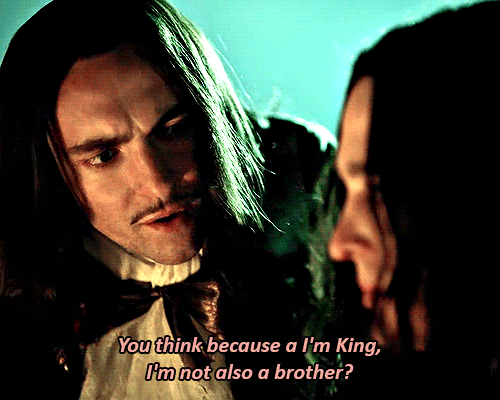

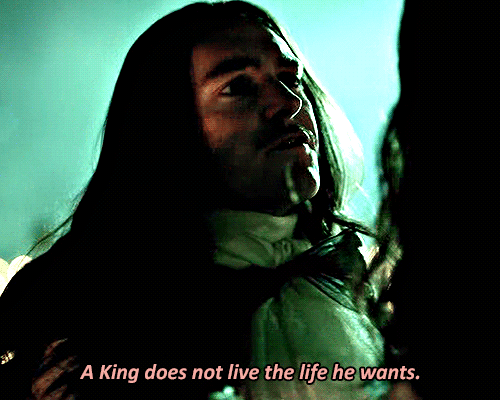
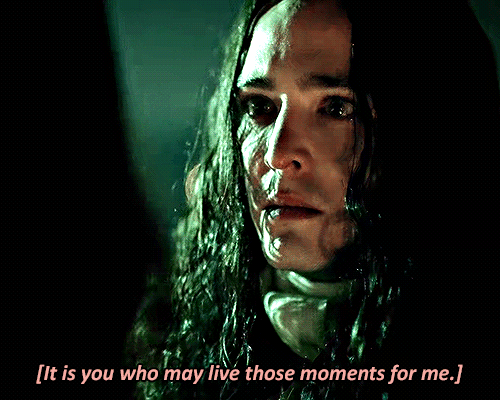
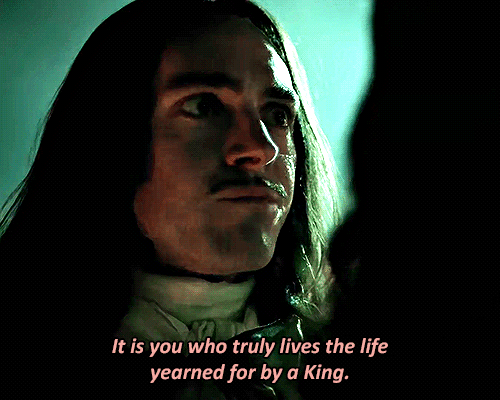
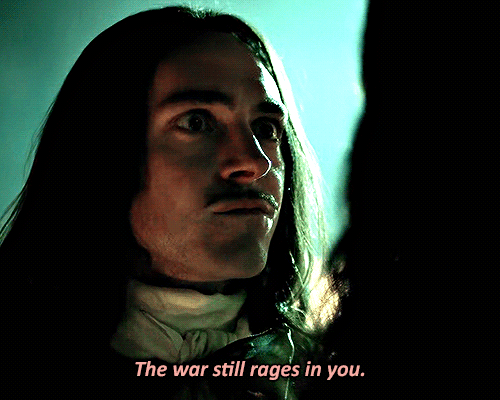
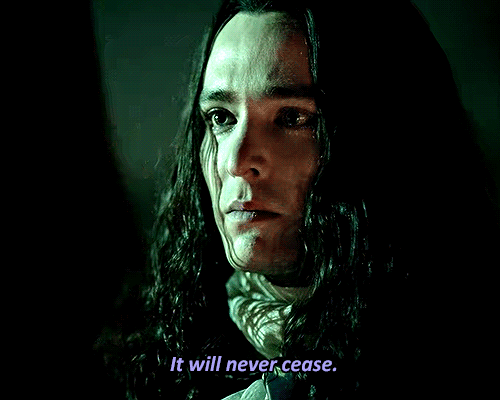
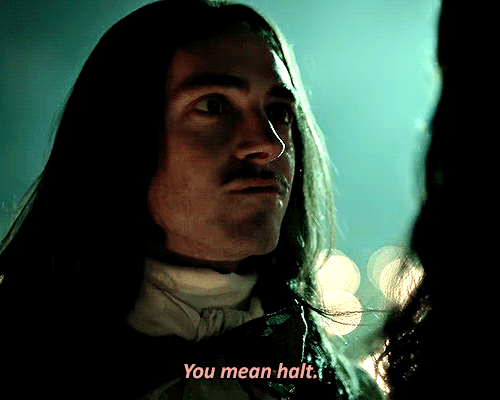



"On the field, I saw a man, young like we were. He carried his brother in a sack over his shoulder. He told me he had promised their mother to take him home. Would you do that for me? I would, but you? I do not know."
#i thought about this show yesterday and while i think the script and acting are bad...it's somewhat entertaining to watch idk#it's just drama after drama...although this scene is actually great though...#versaillesedit#versailles#philippe d'orléans#periodedit#periodedits#perioddramaedit#cinemapix#tvarchive#tvedit#perioddramacentral#alex vlahos#george blagden#louis xiv#dailytvfilmgifs#tvfilmcentral#userstream#tvfilmdaily#by jen
94 notes
·
View notes
Text
Before focusing on the events surrounding one barricade, Hugo allows his readers to grasp the scale of the entire revolt. There were a great number of such barricades scattered all over Paris, in its various parts. It feels like taking a flight over the city and then abruptly plunging into this or that quarter.
The topic of arms and munition seems to be the most crucial. Just imagine: some people break into your house, confiscate all the arms if you have any, or they simply use your windows for firing. And such occurrences, along with the construction of barricades, were simultaneously unfolding on both banks of the Seine, in a third of Paris.
We even catch a glimpse of Hugo himself being caught between “the two fires”: for half an hour, poor Victor was hiding from the bullets behind two half-columns.
In the face-off with the National and Municipal Guards, the rioters transform the centre of Paris into a “colossal citadel.” More and more legions converge on the centre.
Hugo concludes this epic depiction with a scene of the tranquil Tuileries and finally zooms in on the solitary figure of Louis Philippe, who appears “perfectly serene.” The structure and dramaturgy of this chapter are impeccable! And very cinematic. I like when Hugo does this.
12 notes
·
View notes
Text

*rises from the ashes* I LIVEEEE
this was a commission for @nerenight, still involving 18th century lore i know little to nothing about (absurd!!!)
close ups bc they turned out pretty:
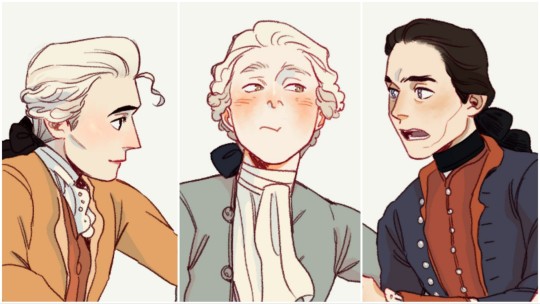
#my art#artists on tumblr#18th century#featuring (from left to right):#louis marie de noailles#marquis de lafayette#(i ain't writing his whole name)#louis philippe comte de ségur
387 notes
·
View notes
Text
The (early) Relationship between Georges de La Fayette and Louis Philippe I
Lately I have gone back to “the roots” so to speak – in other words, I have read the French version of La Fayette’s memoirs (and again realized that the first English version I read was somewhat strange.)
While reading, I found this passage in the fifth volume:
Je ne con les ducs d'Angoulême et de Berry; mais la manière dont le duc d'Orléans demanda de mes nouvelles à mon fils, qu'il avait vu aux États - Unis , me fit un devoir d'aller chez lui
My translation:
I don't know the dukes of Angoulême und de Berry; but the manner in which the Duc d’Orléans inquired after my son, whom he had seen in the United States, made it my duty to go to him.
Most of you are probably aware of the fact that the relationship between the La Fayette’s and the d’Orléans’ often was … interesting to say the least. The Marquis de La Fayette and the Ducs father, Louis Philippe II, Duke of Orléans or “Philippe Égalité” really did not get along during the French Revolution. In that context it is quite interesting to see how their sons connected.
During the course of the French Revolution Louis Philippe II was executed via the guillotine and his sons fled the country. His oldest son, the new Duc d’Orléans, the one mentioned in the quote above, lived in Switzerland before moving to England and later spending two years in North America, mostly in Philadelphia. In April of 1797 he and two of his brother visited Mount Vernon in Virginia before embarking on a three-month trip of the American backcountry. By October they had concluded their trip and George Washington noted in his diary for October 30, 1797:
30. Wind brisk from No. Wt. & cold. Mer. at 54. Doctr. Stuart went away after breakfast. Mr. Cottineau & Lady, Mr. Rosseau & Lady, the Visct. D’Orleans, & Mr. De Colbert came to Dinner & returned to Alexa. afterwards. A Mr. Stockton from N. Jerseys came in the afternoon.
“[Diary entry: 30 October 1797],” Founders Online, National Archives, [Original source: The Diaries of George Washington, vol. 6, 1 January 1790 – 13 December 1799, ed. Donald Jackson and Dorothy Twohig. Charlottesville: University Press of Virginia, 1979, pp. 265–266.] (09/29/2022)
By late 1797, Georges and Felix Frestel had begun their preparations to return to Europe but Georges would not be reunited with his family prior to February of 1798. I am therefor not quite sure if Georges and the Duc d’Orléans met during one of the described instances or elsewhere. Georges certainly had spent his fair share of time in Philadelphia as well.
One way or the other, the two young Frenchman in exile met and seemingly got along quite nicely. I have sadly never found a statement by Georges himself on the meeting or their subsequent relationship.
#marquis de lafayette#la fayette#american history#french history#french revolution#history#1797#george washington#georges washington de lafayette#louis philippe#louis philippe i#duc d'orléans#founders online
13 notes
·
View notes
Text
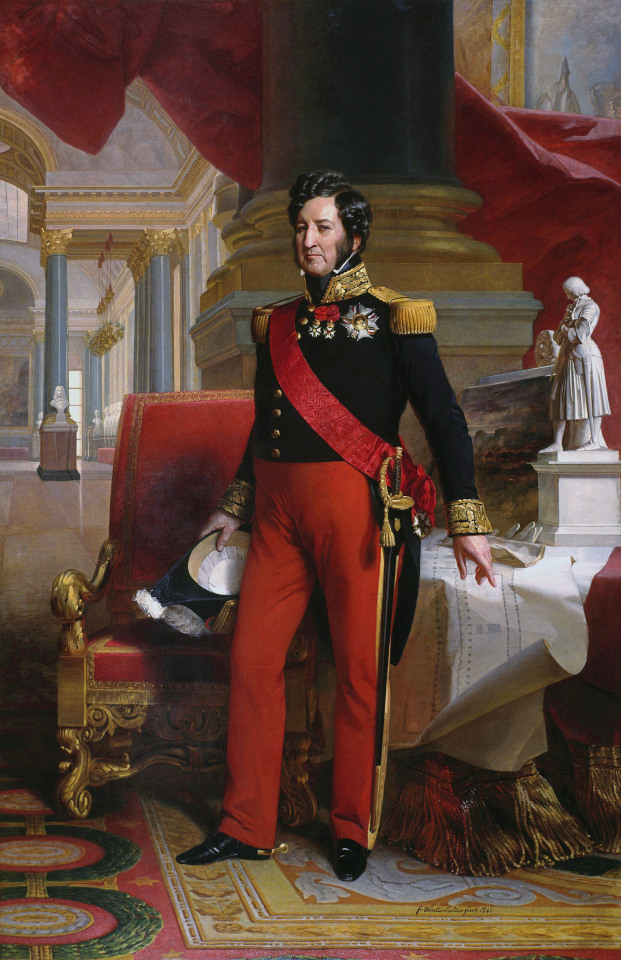
Louis Philippe, King of the French by Franz Xaver Winterhalter, 1841.
#classic art#painting#franz xaver winterhalter#german artist#19th century#portrait#male portrait#indoor portrait#louis philippe i#king#house of orleans#fashion#palatial interior#chair
8 notes
·
View notes
Text
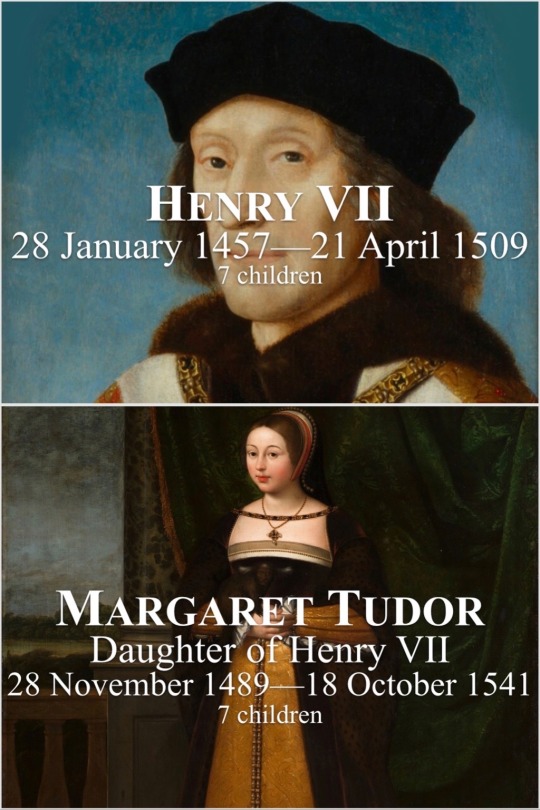




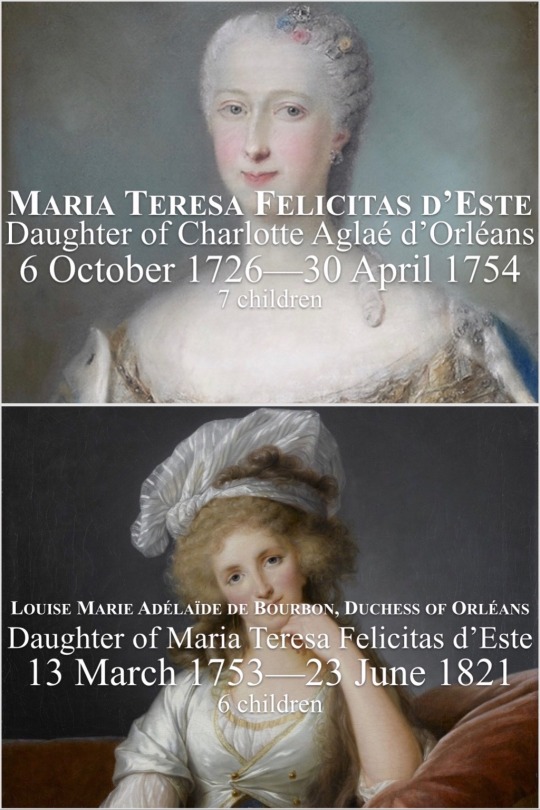
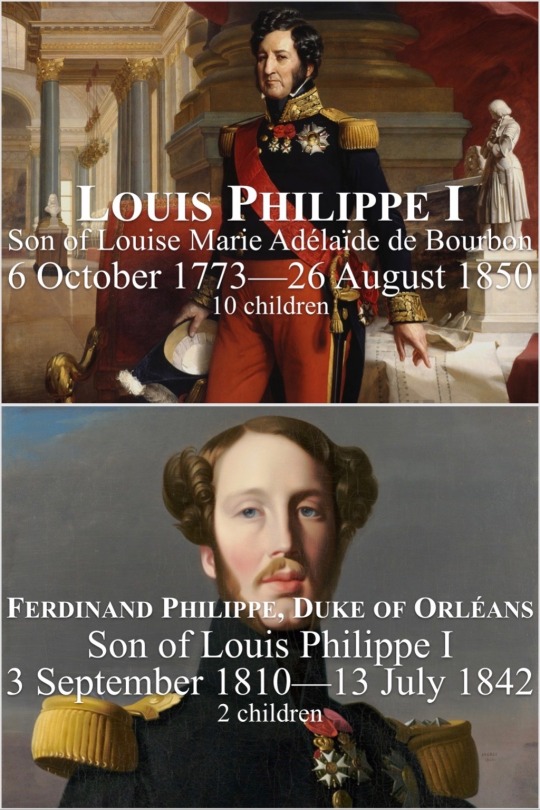
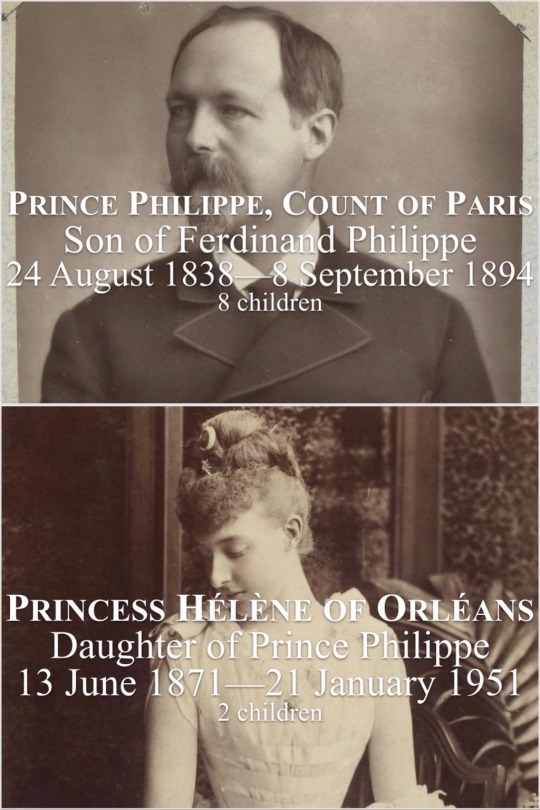
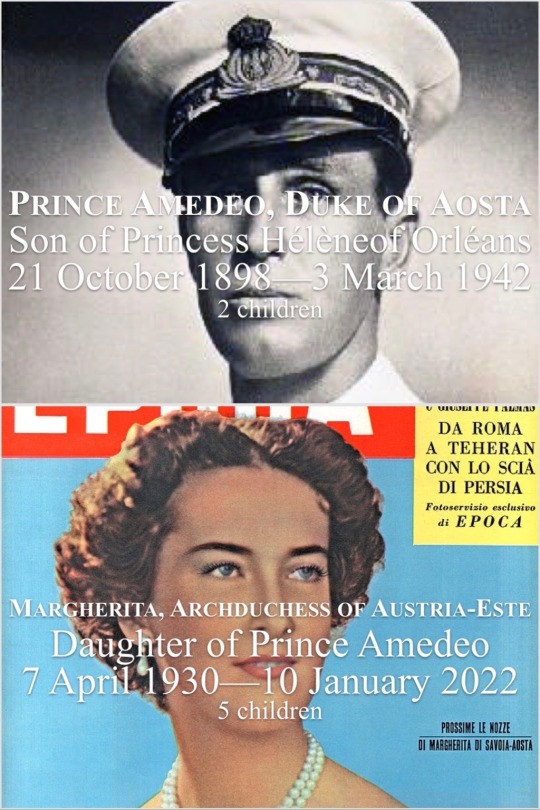
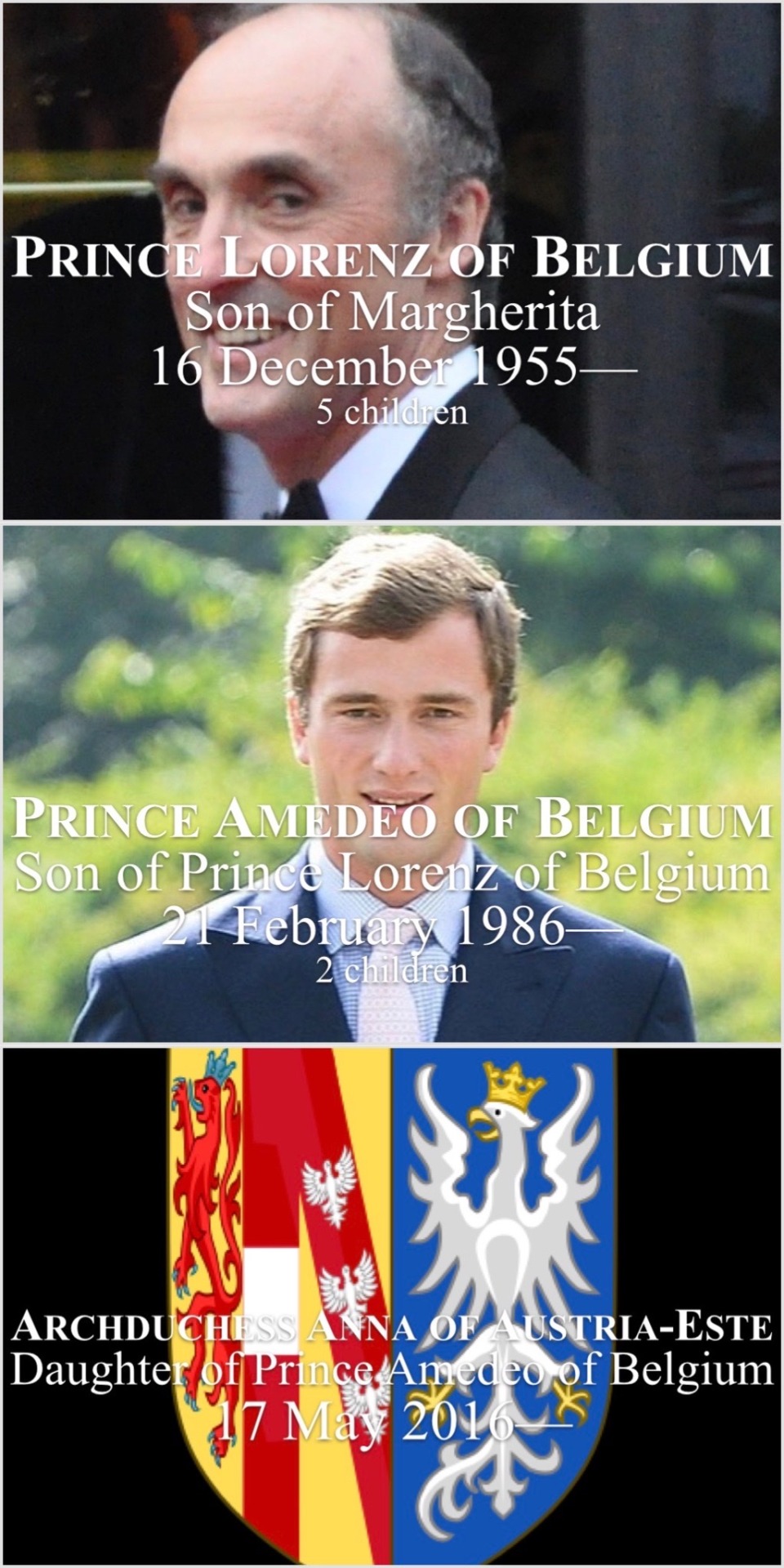
Descendants of the Tudors
#descendants of the tudors#henry vii#margaret tudor#james v#mary queen of scots#james vi and i#elizabeth stuart#charles i louis#elizabeth charlotte madame palatine#philippe ii duke of orléans#charlotte aglaé d’orléans#maria teresa felicitas d’este#louise marie adélaïde de bourbon#louis philippe i#ferdinand philippe duke of orléans#prince philippe count of paris#princess hélène of orléans#prince amedeo duke of aosta#margherita archduchess of austria este#prince lorenz#prince amedeo
4 notes
·
View notes
Text
Some July Monarchy Images I have found.
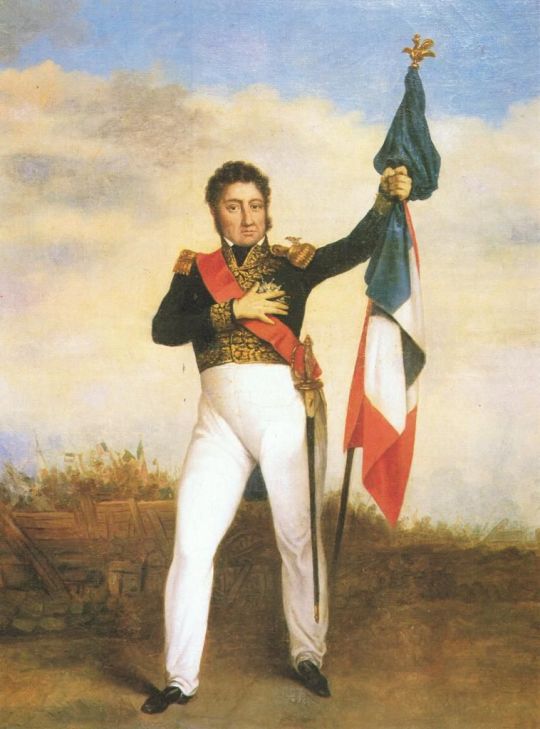


1 note
·
View note